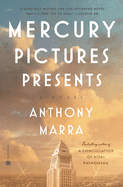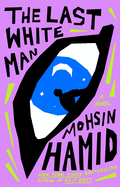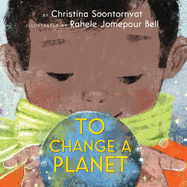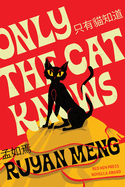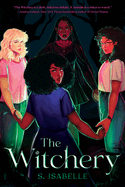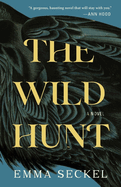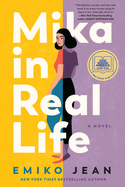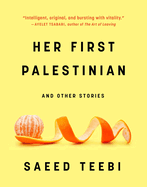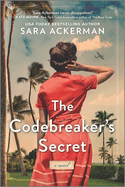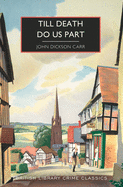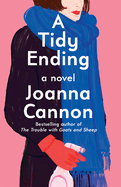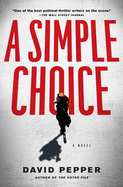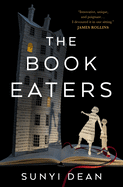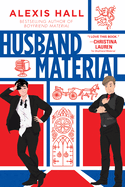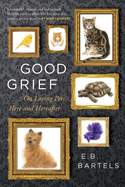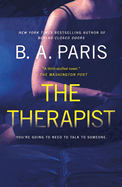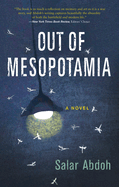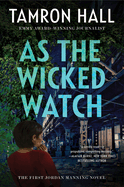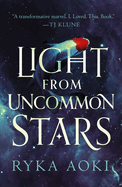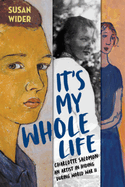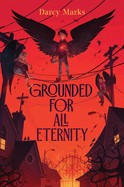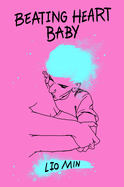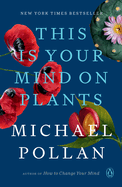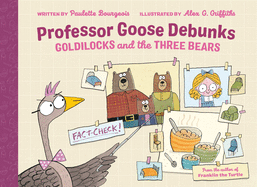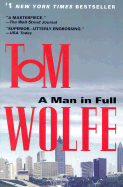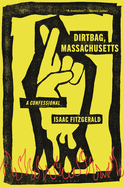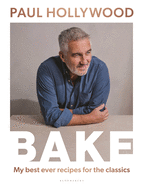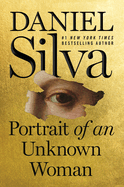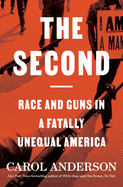Friday, August 5, 2022
This week we review Anthony Marra's third novel, Mercury Pictures Presents, which examines the lives "swept up by the machines of war and propaganda in a dazzling novel set in 1940s Hollywood"; Mohsin Hamid follows up Exit West with "a frighteningly timely allegory," The Last White Man; and two-time Newbery Honoree Christina Soontornvat "packs a powerful punch" in To Change a Planet, a picture book about climate change with "sublime illustrations" from Rahele Jomepour Bell.
All eyes in the bookiverse are on the Justice Department suit seeking to block Penguin Random House's purchase of Simon & Schuster. A highlight on the second day of the trial this week was Stephen King's testimony: "I came because I think that consolidation is bad for competition."
Mercury Pictures Presents
by Anthony Marra
Mercury Pictures Presents is the outstanding third work of fiction from Anthony Marra (A Constellation of Vital Phenomena; The Tsar of Love & Techno). Although Marra may have panned away from the distressed Chechen settings of his first two books, instead choosing to focus on grandiose Hollywood backdrops for this novel, the treacheries of war and propaganda continue to emerge as a profound theme in his work.
Maria Lagana is an Italian émigré who works for Mercury Pictures, a B-grade studio owned and operated by the unscrupulous Feldman brothers, Artie and Ned. Her job is to slip illicit content past the stringent Production Code censors of 1941. One such film illustrates the power of propaganda and happens to explode into the mainstream at a crucial moment in history. Soon after, the U.S. War Department taps Mercury to make pictures that promise to drum up support for American involvement in World War II.
Marra quickly and nimbly expands this premise into CinemaScope, establishing depth and nuance for even his most marginal characters. Throughout the novel, foreign nationals who had narrowly escaped the rise of fascism in Europe awaken to an adoptive country spiraling into its own forms of jingoistic paranoia. Yet Marra's belief that hope and the human spirit can triumph over hatred and cynicism never falters. He has crafted a dazzling historical novel that sparkles with buoyant humor and resilient characters, in spite of the atrocities that entangle them. Mercury Pictures Presents is a marvelously smart and delightfully absorbing novel from a writer who continues to one-up himself, and appears to take great joy in doing so. --Dave Wheeler, associate editor, Shelf Awareness
Discover: With wit and tenderness, Anthony Marra examines the human lives swept up by the machines of war and propaganda in a dazzling novel set in 1940s Hollywood.
The Last White Man
by Mohsin Hamid
It happens to a lot of authors: sooner or later, they try Kafka on for size, as Mohsin Hamid has done (sort of) in The Last White Man. The opening is--it's impossible to avoid the word--Kafkaesque: "One morning Anders, a white man, woke up to find he had turned a deep and undeniable brown." Yet Anders, a trainer at an essentially all-white gym, isn't the only person in the unnamed town whose skin suddenly darkens. His transformation affects not only himself but also other white people in his life, including girlfriend Oona, a yoga instructor still processing her younger brother's drug-related death; Anders's father, "gaunt and ill," who--now that his son is a "dark man"--gives him cash and a rifle for protection; and Oona's mother, who complains that "our people" are changing, and is disturbed by the increase in "the dark faces on her street." As more of those faces darken, white militants try to run the transformed, including Anders, out of town.
Despite its Kafkaesque beginning, the novel, due to its depiction of town-wide transformations and subsequent social breakdown, bears a closer resemblance to Blindness, José Saramago's masterwork about a similar development. Hamid (Exit West; Discontent and Its Civilizations; How to Get Filthy Rich in Rising Asia) even uses the term "a kind of blindness," also noting that, "as with actual blindness," changes can lead to a new kind of seeing. The result is a frighteningly timely allegory about welcome forms of progress and the fears of people unable or unwilling to grow. --Michael Magras, freelance book reviewer
Discover: Mohsin Hamid's disturbing yet timely allegory considers a town in which white people suddenly become dark-skinned.
Only the Cat Knows
by Ruyan Meng
Through the first half of her spare, intricate novella Only the Cat Knows--recipient of the 2020 Red Hen Press Novella Award--Ruyan Meng brilliantly builds a mounting sense of claustrophobia. A factory worker labors hard every day but is unable to sustain his family. His wife can't work because their two younger children are seriously ill; meanwhile, their older daughter seethes with resentment. He already owes his younger sister more than he can repay, a fact she uses to berate him even as she relies on him to be her on-demand handyman, as he is for many of his neighbors.
While dreaming one night of finally receiving his long-awaited (though paltry) raise, he's awakened by his wife at 3:30 a.m. and sent for their rations and staples. Somehow, he loses the 10 yuan that is all they have for an entire month of food. His desperate reaction to this loss, one that accelerates the narrative toward horrific tragedy, fuels the novella's second half. "Life isn't living anymore," his sister had recently remarked, "but, it's only a long, resigned period of waiting for something better, something that will probably never happen." He can wait no more.
Meng writes with impressively taut control: her pacing--from stifling to breathtaking--is especially remarkable, as is her vocabulary (thaumaturgic, adamantine). Born and educated in China, Meng crafts fiction with factual provenance: her bio reveals that her stories are inspired by true events in a Chinese "worker village" of the 1950s. And yet geography matters little here: Meng presents a universal catastrophe in which she deftly proves 10 yuan is the breaking point of humanity. --Terry Hong, Smithsonian BookDragon
Discover: Ruyan Meng's spare, stark debut novella is a chilling rumination on the human limits of endurance for a factory worker trapped under claustrophobic pressure at home and work.
The Wild Hunt
by Emma Seckel
"On the first of October they arrived." Leigh Welles has just returned home to the island of her birth for her father's funeral, and the crows have returned as they do each October, but she finds nearly everything else changed since the war. So begins Emma Seckel's first novel, The Wild Hunt, an atmospheric story of place, family, home and belonging.
This small, isolated Scottish island lost many of its young men, "nearly an entire generation off to fight for a country they'd barely thought of until now," in World War II. Leigh's brother had gone, and though he survived, he did not come home, and all they've done since is argue. Leaving has in fact been a family trait, beginning with their mother's mysterious departure when Leigh was a girl. Later, Leigh committed the sin (in island eyes) of moving to the mainland, where she'd been miserable. Now she's returned to the Welles home, "a run-down sheep farm with no sheep." Her mother gone, her brother gone, her father dead, the island haunted by its absent young men and by the sluagh--those crows who group in threes and beat upon windows and strike at eyes and kill.
The Wild Hunt is part ghost story, part elegy to war and traditional lifestyles, dreamlike even in its horrors. Seckel weaves historical fiction with mystery and fantastic elements and threads of romance in this tale of love, grief, attachment to place and resistance to change. Her island setting is both otherworldly and firmly rooted, and her prose style is lushly evocative. This imaginative novel is memorable and wild indeed. --Julia Kastner, librarian and blogger at pagesofjulia
Discover: On a remote Scottish island, villagers battle the sluagh--crows said to host the souls of the dead--and the aftermath of World War II, and one young woman reckons with the ghosts of her own past.
Mika in Real Life
by Emiko Jean
Author Emiko Jean transfers the effusive charm of her YA novels (Tokyo Ever After; Tokyo Dreaming) into her first adult fiction, Mika in Real Life. At age 35, Japanese American Mika is once again jobless. Her career's been erratic: fired from her job at a donut shop and a nannying gig, and for allegedly writing "X-rated Predator fan fiction... on [her] work computer." She is shopping at Target for a bottle of cheap wine when she answers a call from "a hyper-positive young voice" announcing, "I think I'm your daughter."
Sixteen years earlier, 19-year-old college freshman Mika surrendered Penny in a closed adoption to a Dayton, Ohio, white couple. Curious Penny's request--"I'd like to keep talking"--manifests as engaging video chats, which lead to discussions of an in-person visit. Rather than reveal "her unimpressive life résumé" as an "unemployment enthusiast," Mika manages--with the help of supportive friends--to present a "life she might have had": one as a home-owning travel expert with an adoring boyfriend. But when Penny discovers Mika is "a lying liar who lies," how will Mika regain her daughter's trust?
In addition to a satisfying reunion story, Jean provides a poignant and layered examination of many aspects of motherhood (whether by force, nature or choice). She deftly weaves multiple relationships--between Mika and Penny, Mika and her own critical mother, and Penny and her (late) adoptive mother. The story captures disappointments, forgiveness and unconditional connection, all complicated by differences in culture and race. Jean's persuasive characters excel in vivacious banter and vulnerable reveals, populating a rewarding narrative about crucial learning and absolute loving. --Terry Hong, Smithsonian BookDragon
Discover: Emiko Jean makes her adult fiction debut with a captivating novel about mothers and daughters--and the ties that bind but sometimes break.
Her First Palestinian: And Other Stories
by Saeed Teebi
Saeed Teebi's Her First Palestinian is a deeply moving collection of Palestinian diaspora stories set in the Canadian provinces of Ontario and Quebec. Bustling with the everyday drama of people who are at various stages of assimilating to their adopted homes, the stories include doctors, lawyers and teachers at the cusp of their professional lives, tending generational wounds of traumatic displacement from a homeland under occupation.
Teebi, a Canadian attorney and writer of Palestinian heritage by way of Kuwait, spins tender tales--from the title story, which captures the romanticization of the Palestinian cause by an idealistic lawyer, to that of a schoolgirl swept up in racial justice protests that alarm her Middle Eastern father in "Enjoy Your Life, Capo"--and illuminates Arabic history in the context of the contemporary cultural challenges that face his protagonists. Infused with enchanting emotional energy, "Ushanka" consists of e-mails between a grandfather and his beloved granddaughter Dasha. An aura of bewilderment colors their communication as Dasha tries to convince her impulsive grandfather, who fled to Moscow to search for an actress he once knew, to come home to Montreal. The grandfather, an aspiring citrus magnate who was forced out of his home city of Yafa, carries memories that are as fragrant and sweet as the oranges he once proudly sold.
One of the nine stories in Teebi's debut collection transports readers to an unnamed Middle Eastern kingdom where family members await the outcome of their asylum application. For refugees who settle in Canada, the prospect of a peaceful and prosperous future is some consolation for a homeland that now exists only in their dreams. --Shahina Piyarali, reviewer
Discover: Saeed Teebi's nine intimate stories feature Palestinians who have settled in Canada and the generational divisions between those who fled their homeland as refugees and their offspring.
The Codebreaker's Secret
by Sara Ackerman
Sara Ackerman (Radar Girls) provides a fast-paced, lushly described historical adventure in her fifth World War II novel, The Codebreaker's Secret. After losing her beloved brother, Walt, at Pearl Harbor, codebreaker Isabel Cooper accepts an assignment in Hawai'i to help defeat the Japanese. There, she navigates brain-bending codes as the only woman in "the Dungeon," an underground bunker staffed with brilliant men none too thrilled by her presence. Two decades later, Luana Freitas, an ambitious young reporter on assignment at a swank Hawaiian hotel, becomes a friend of a hotel guest who goes missing. Lu, with the help of veteran photographer (and former flyboy) Matteo Russi, digs into the mystery, uncovering some secrets that may connect the missing guest to Isabel--and put Lu herself in danger.
Ackerman skillfully shifts back and forth between her narratives, creating two female protagonists who are both driven and compassionate. Isabel's deep grief over her brother's death conflicts with her joy at making friends with Matteo and savoring Hawai'i's natural beauty. Both Isabel's efforts to be fully accepted by her fellow cryptanalysts and Lu's struggle to figure out what she wants from her journalism career feel achingly timely. Meanwhile, both women are also wrestling with more personal desires, even as the war (for Isabel) and the events at the hotel (for Lu) pull them in different directions than expected.
Thoughtful, romantic and ultimately hopeful, The Codebreaker's Secret is a riveting story of intrigue and love in wartime. --Katie Noah Gibson, blogger at Cakes, Tea and Dreams
Discover: Sara Ackerman's fast-paced fifth novel weaves together old loves, wartime secrets and new dangers in a lush Hawaiian setting.
Mystery & Thriller
Till Death Do Us Part
by John Dickson Carr
John Dickson Carr (1906-1977), author of The Corpse in the Waxworks and many other books and stories, was considered by the New York Times to be "a master of the locked-door mystery." His 1944 whodunit, Till Death Do Us Part, is a doozy of an impossible mystery, and it is beautifully written, ingeniously plotted and compelling. Best of all, it doesn't cheat with the clues, which are all laid out in plain sight. But few readers will be able to put these puzzle pieces together before Carr's master detective, Dr. Gideon Fell, gathers everyone around to reveal all.
After an introduction by CWA Diamond Dagger Award-winning author Martin Edwards, the story begins at an outdoor fair where local celebrity and playwright Dick Markham and his new fiancée, Lesley Grant, visit a fortune-teller. Lesley has a very agitating solo session and leaves in a panic. Before the fortune-teller--who is really Sir Harvey Gilman, "one of the greatest living authorities on crime"--can reveal anything to Dick, Lesley shoots Dick in the shoulder. Gilman summons Dick to his home and tells him that his fiancée is actually a murderer who killed two husbands and a boyfriend. But she evaded conviction by somehow convincing the men to inject themselves with poison while inside locked rooms. The following morning, Gilman is found dead in a locked and sealed room, a hypodermic syringe lying near him. This brings amateur sleuth Dr. Fell to town.
This skillfully plotted, thoroughly enchanting, crackerjack entertainment will have mystery fans rejoicing that Poisoned Pen Press has reissued a neglected treasure. --Kevin Howell, independent reviewer and marketing consultant
Discover: This reissue of Till Death Do Us Part is the perfect starting point for Golden Age mystery fans who have never read John Dickson Carr.
A Tidy Ending
by Joanna Cannon
A tidy ending is elusive in this book of the same name, the third novel from Joanna Cannon. It thrums with uneasiness as an unreliable narrator relates her version of the serial murders of four women in her Scottish town. As in her previous novels (The Trouble with Goats and Sheep; Three Things about Elsie), Cannon brings intrigue to the ordinary citizens of quiet villages.
A Tidy Ending opens with a "Now" chapter in which Linda, age 43, refers to being in an apparent place of confinement where it feels "everyone has been sealed into some kind of vacuum and lost to the world forever." Such periodic "Now" chapters are rife with foreshadowing, as is Linda's unconventional behavior. Of her indifferent husband, Terry, she wonders "what my life would have been like if he wasn't in it." Dark references to a childhood tragedy in Wales that sent her to resettle in Scotland grow increasingly detailed, suggesting a link to Linda's reaction to the murders. With no friends besides Terry and her hypercritical mother, Linda develops a fascination with glossy catalogs, fantasizes a new self-image and nurtures an unlikely friendship with an intriguing couple. She touts her germophobic obsession with "hoovering" and sanitizing, and is soon cleaning the couple's apartment, an arrangement that feels sinister but delights Linda.
Cannon, a psychiatrist, draws a character with fascinating contradictions: naïve but clever, awkward yet wily, aloof yet observant. "Everything you do and say and think is tied and knotted forever to something that went before," Linda cryptically notes. Readers will agree with her observation that summarizes this gripping novel: "You never see it coming." --Cheryl McKeon, Book House of Stuyvesant Plaza, Albany, N.Y.
Discover: Questions build in this suspenseful novel as an unreliable narrator describes a series of murders in her Scottish village.
A Simple Choice
by David Pepper
In the eerily realistic thriller A Simple Choice, a brilliant doctor--whose methods are unethical and whose enablers will destroy anyone in their way--is on the verge of curing cancer. When beloved Senator Duke Garber jumps off a cliff in Maine, D.C. reporter Palmer Knight is on a mission to find out why. Suddenly, he's the victim of a deepfake scandal and his network suspends him.
Meanwhile, Amity Jones grows suspicious of her mother's neighbor, who has been receiving regular visits from medical personnel in a mysterious dark van. Colin Gentry, the neighbor's kid, had been diagnosed with cancer but, thanks to the visits, is now cancer-free. Amity's mother and Colin share the same doctor, but her mother's cancer is getting worse and, when asked how Colin recovered, the doctor responds cagily. Amity decides to follow the van and is caught. Her captors promise to cure her mother as long as she remains quiet, but Amity knows they can't be trusted and reaches out to Palmer Knight. Soon, both Amity and Palmer are under threat and out of their league in this riveting thriller.
Author David Pepper (The Voter File) presents a real-life conundrum that illustrates how curing cancer is not--and never will be--simple. His characters face impossible ethical, moral and life-ending decisions while making a mad rush against time to do the right thing. The author challenges preconceived notions about a horrible, multifaceted disease and combines this with car chases and behind-the-scenes political skullduggery, making the choice to read A Simple Choice a simple one. --Paul Dinh-McCrillis, freelance reviewer
Discover: What is best for humanity becomes skewered by backstabbing and questionable morality in this brilliantly written thriller.
Science Fiction & Fantasy
The Book Eaters
by Sunyi Dean
Sunyi Dean's debut novel, The Book Eaters, is a surprisingly moving horror-fantasy hybrid that envisions a society where the titular book eaters consume books in place of food. The book eaters are unmistakably vampiric creations, both in their ancient fustiness and their secretive role behind the scenes of human civilization--but more explicitly in the introduction of a kind of subspecies called mind eaters, who prey on people. An early, disturbing scene portrays the book-eater protagonist, Devon, feeding a vicar to her ravenous mind-eater son, leaving the vicar a barely living husk.
Perhaps even more of a threat than her son's monstrous hunger are the clans of book eaters that Devon left behind. Dean alternates between chapters set in the present and in the past, in which readers are introduced to the book eaters' suffocating patriarchal society, a rule-bound world where there is no room for assertive women or queer love. The book eaters consume not only physical books but also the words and stories inside, which gives Dean a handy way to ruminate on the importance of narrative. Book-eater women like Devon have their diet limited to a highly gendered selection of fairy tales and the like--a sly way of constricting their understanding of possibilities.
After an act of rebellion sends Devon into hiding, she is forced to construct a new sense of herself while desperately evading the book eater foot soldiers who pursue her and her son. The Book Eaters is an exciting and grotesque novel with an open, earnest heart. --Hank Stephenson, manuscript reader, the Sun magazine
Discover: The Book Eaters wields a vividly imagined society of ancient, book-consuming creatures to contemplate the importance of narrative in finding one's own identity.
Romance
Husband Material
by Alexis Hall
Alexis Hall (A Lady for a Duke) brings readers a hilariously neurotic romance in Husband Material. Lucien O'Donnell, son of rock stars and chaotic in every way, cleaned up his act by fake-dating well-behaved barrister Oliver Blackwood in Boyfriend Material. But the fake-dating turned to real love, and now Luc and Oliver have been together for two years. They cook for each other and shop at IKEA; Luc can't remember the last time he went to a glamorous, queer party. Luc's also noticing that nearly everyone they know is getting married. He's the maid of honor for his best friend, Bridget; his posh coworker Alex is marrying the daughter of an earl; and even his evil ex, Miles (who sold their relationship to the tabloids), has found true love. Feeling societal pressure, Luc finds himself getting down on one knee and proposing to Oliver. But now he can't help but wonder: Is he, Luc, actually husband material?
Snarky and insightful, Husband Material is the story of a man who is truly trying to improve himself but who always wonders if he's getting it wrong. The London setting is irresistible, as are Luc's attempts to make sure that he's adulting properly. Full of a string of wonderfully odd characters--Baby J (who looks "ever so slightly like something Jim Henson had built out of foam and ping-pong balls"), whose parents are both named James Royce and each go by the name James Royce-Royce; Luc's unbelievably inept coworkers; and Oliver's judgmental family--there's never a dull moment. --Jessica Howard, freelance book reviewer
Discover: A former wild child is trying to become husband material for his barrister boyfriend in this delightfully snarky romance.
Pets
Good Grief: On Loving Pets, Here and Hereafter
by E.B. Bartels
"When we open our hearts to animals, death is the inevitable price," writes E.B. Bartels, a former bookseller at Newtonville Books, Mass. Good Grief, her impeccably researched first book, offers deeply personal stories about the many ways companion animals enrich lives and how animal lovers must ultimately cope with the pain of their loss.
Having a pet is a choice, and mourning pets is nothing new. Bartels, a lifelong and devout animal lover, has grappled with this predicament since she was a child. Her father loved animals, but her mother claimed she was "violently allergic" to "anything with fur, feathers, or hair." That left young animal-loving Bartels to cultivate freshwater fish in tabletop aquariums. When "trouble in (fish) paradise" began and occupants were found floating in the tank and/or were swallowed up by larger fish, Bartels became intrigued by the nature of loss and grief. Starting in kindergarten, she developed something of a "pet aftercare industry," where she assisted with animal funerals and burials with peers at school.
This in-depth, splendidly informative narrative is replete with down-to-earth stories from Bartels herself and those of ordinary pet owners, pet care professionals, celebrities and historians. The pivotal roles pet birds, reptiles, rodents, horses, dogs and cats have played in personal lives--and how they are ultimately grieved and remembered--are interspersed with fascinating historical facts. Readers, like Bartels, who long to comprehend the pet-human bond--why people care so much for their pets, in life and in death, and what makes the bond so worthwhile and why--will be well educated and find much to reflect upon in Good Grief. --Kathleen Gerard, blogger at Reading Between the Lines
Discover: A lifelong animal lover offers a captivating and impeccable study about the many ways companion animals enrich lives and how people mourn and grieve their loss.
Now in Paperback
The Therapist
by B.A. Paris
Most homes have had previous residents, although new occupants put their own touches on each room. It's those past tenants--and what happened to them--that worry Alice Dawson, who's bought a beautiful house with her boyfriend, Leo Curtis, in The Circle, a London gated community of 12 homes that B.A. Paris (Behind Closed Doors) explores in The Therapist, her fifth engrossing psychological thriller.
After a few nights, Alice starts to hate the house and discovers the neighbors are standoffish, and a few times Leo believes someone else is in their home. Then, Alice learns that therapist Nina Maxwell was murdered upstairs the year before; her husband, Oliver, committed suicide after being accused of the crime. Alice is furious that Leo didn't mention the murder, and her reactions intensify because she feels connected with women named Nina: her sister, Nina, was killed in a car accident along with their parents. She agrees to help investigator Thomas Grainger, hired by Oliver's sister, find the killer.
Paris creates vivid character studies for each resident of The Circle, including the murdered Nina. Alice could use a therapist herself as her anxiety and obsession are out of control, yet she still engenders sympathy. Alice desperately wants love and friendship, and to be accepted by her neighbors--though she suspects one of them is Nina's murderer. The Circle's secluded location isn't exactly a Peyton Place, but each resident has secrets, including Leo.
The Therapist skillfully melds a twisty, psychological thriller with a contemporary approach to the locked-room mystery. --Oline H. Cogdill, freelance reviewer
Discover: In this engrossing psychological thriller, an anxiety-ridden woman tries to find out what happened to the woman murdered in the home she and her boyfriend bought.
Out of Mesopotamia
by Salar Abdoh
If there were a formula for war novels, it might include a healthy dose of Ernest Hemingway and a splash of Tim O'Brien mixed with a subtle tincture of Leo Tolstoy. In writing, however, following a formula rarely produces anything exceptional. Author Salar Abdoh (Tehran at Twilight) defies all formulaic constructions, despite the very real influence of these seminal writers in Out of Mesopotamia. The result is an unblinking look at the realities of war and the impossibility of ever leaving war behind.
Abdoh, drawing on his experiences as an embedded journalist in Iraq and Syria, positions protagonist Saleh as a witness to the constant machinery of active combat--the damage, loss and necessarily loose camaraderie of those living (and dying) in it. Saleh's role as witness is somewhat comic, as his sight is often blurred, distorted or completely lost in one eye. Even his role as a writer is tenuous; he is able neither to embrace his peacetime job as art critic and television writer nor to tell the truth of what he has seen in battle: "I do not know how to translate any of this. I do not know in how many worlds a person can live simultaneously before they lose themselves completely. There is not language enough to explain all of this." Though Saleh may doubt the sufficiency of language, Out of Mesopotamia--a New York Times Book Review Editors' Choice--provides a wrenching examination of war and of the way humanity can't ever manage to be done with violent conflict. --Sara Beth West, freelance reviewer and librarian
Discover: Out of Mesopotamia defies all formulaic constructions, offering an unconventional and unblinking look at the realities of war and the impossibility of ever leaving war behind.
As the Wicked Watch
by Tamron Hall
Tamron Hall draws on the depth of her own experience as a broadcast journalist in As the Wicked Watch, in which a Black female reporter goes above and beyond the parameters of her job to help solve the gruesome murder of a Black teen in Chicago. Crime reporter Jordan Manning first covers the story of 15-year-old Masey James as a missing persons case--one that crawls under Jordan's skin, especially after her exclusive interview with Masey's mother. When Masey's body is eventually located in an abandoned playground, Jordan is the first on the scene: "I couldn't ignore what I recognized as a plea for help, for the police to care, for attention from the media, for answers."
Recognizing that her role in television gives her not only access, but the ability to put pressure on the people and groups that tend to ignore cases of missing--or murdered--Black girls, Jordan takes action: interviewing police leads, connecting with Masey's family, tracking down loose ends in Masey's case--and all in her signature stiletto heels. Throughout, Hall's experience in journalism is evident; Jordan's tracking of the clues makes for a compelling mystery, just as they offer a fascinating look behind the scenes of what it takes to get the perfect broadcast story--hours and hours of work often distilled down into minutes or seconds of television coverage. The first in a planned series featuring reporter Jordan Manning, As the Wicked Watch is a well-paced and thoughtful crime novel that probes questions of race, representation and community care. --Kerry McHugh, freelance writer
Discover: In this well-paced and tightly plotted mystery, a broadcast journalist probes questions of race and representation following the murder of a teenage Black girl.
Light from Uncommon Stars
by Ryka Aoki
Intergalactic travel, Faustian bargains and the misunderstood music of Béla Bartók commingle in a delightfully offbeat celebration of life, the universe and the quest for the perfect donut from Ryka Aoki (He Mele a Hilo).
Renowned violin teacher Shizuka Satomi, known as the "Queen of Hell" for her seemingly supernatural star-making power, searches the world for a last and seventh student, ending up back in her hometown of Los Angeles. There she stumbles across teen violinist Katrina Nguyen in a park. The trans girl, alone in the world after fleeing her abusive father, has tremendous musical talent, and Shizuka takes her under her wing. To traumatized, desperate Katrina, becoming the famous woman's student and finding safe haven under her roof feels too good to be true. It is. Shizuka's deal with the devil is no mere figure of speech. She owes hell seven souls and needs to pay only once more. "Souls are cheap. The trick is finding the right soul," and brilliant, guileless Katrina fits the bill perfectly. As she comes to know better Katrina's careworn but gentle heart, Shizuka finds herself having second thoughts. Her budding romance with Lan Tran, an indie donut shop entrepreneur who's secretly an extraterrestrial refugee, further leads her to wonder, what does it take for a soul to be saved?
This fresh, exuberant tribute to found family and the joy of self-love moves with surety and grace through depictions of trauma and anxiety, and elegant contemplation of performance as profession. The Light from Uncommon Stars--an Indie Next Pick, a 2022 Stonewall Book Award winner and a finalist for the 2022 Hugo Award for Best Novel--will leave readers with the breathless feeling of watching a virtuoso perform. --Jaclyn Fulwood, blogger at Infinite Reads
Discover: Ryka Aoki blends realism, fantasy and sci-fi beautifully in this unrestrained, LGBTQ+-positive fairy tale of classical music, Faustian bargains and interstellar donuts.
Children's & Young Adult
To Change a Planet
by Christina Soontornvat, illus. by Rahele Jomepour Bell
"One person seems small, quiet, and insignificant," but two-time Newbery Honoree Christina Soontornvat (The Last Mapmaker; All Thirteen) gracefully illuminates how "when one person, and one person... become many" they "can change a planet." Soontornvat's sparse text packs a powerful punch and allows Rahele Jomepour Bell (Our Favorite Day of the Year) the space to construct sublime illustrations that deliver an equally effective blow. Author and illustrator tag team on their collaboration--in much the same way they encourage others to cooperate--and they deftly educate young readers about the lethal dangers of climate change.
Soontornvat's clean, straightforward prose about the global crisis makes this alluring picture book accessible to early readers. The heft of her message, though, has the potential to inspire all: "When many cars, many factories, and many cities let loose millions and billions and trillions [of carbon dioxide molecules], they trap and stifle, like a too-warm blanket." The cogency of Bell's mixed-media illustrations cannot be exaggerated. The blend of realism (heartbreaking polar bears) and metaphor (a blanket covering Earth) portray the text succinctly. Her striking colors, rich detail and lush textures pull readers into both the planet's beauty (a star-filled night sky) and its devastation (a raging wildfire).
To Change a Planet might be small and quiet, but it is anything but insignificant. Choice words and stellar art create the kind of reading experience that sticks with a person, that inspires one to believe they really can "change a planet." These pages will almost certainly breed future environmental activists. --Jen Forbus, freelancer
Discover: A Newbery Honor recipient smartly distills climate change down to the facts in this extraordinarily illustrated picture book that allows young readers to grasp the enormity of this global crisis.
The Witchery
by S. Isabelle
The Witchery is a delightfully dark take on magic and boarding school tropes, wherein a coven of student witches feels compelled to end a bloody, annually recurring curse that's destroying their adopted hometown.
Sixteen-year-old blonde and "pale"-skinned Logan Wyatt is still new to Mesmortes Coven Academy in the "fiendish little witchtown" of Haelsford, Fla., when the Red Three invite her to join their circle. "Sociable and ambitious" Jailah Simmons, greenwitch Thalia Blackwood and deathwitch Iris Keaton-Foster are three powerful Black students who are determined to end the Haunting Season, a "yearly hex that plague[s] Haelsford" in which "monstrous" Wolves emerge from the Swamp and kill. Logan's own magic is weak, but she's also a proxy, someone who holds "the power to manipulate magic against its own rules." With the aid of a powerful amplyfyr stone, and a couple of unexpectedly useful boys from nearby non-magical Hammersmitt School, the witches seek out the enigmatic Wolf Boy, who's prophesied to end the curse. But as bodies begin to accumulate, the magic gets darker and the Wolf Boy proves difficult to control, the struggling coven-mates fear they may be in way over their heads.
S. Isabelle's debut delivers a wonderfully atmospheric and inclusive magical world, full of danger, drama and forever friendship. Multiple POVs allow each distinct voice to provide crucial motivation as they drive the spellbinding plot forward. The Witchery is a thoroughly modern novel steeped in satisfyingly classic witch lore. --Lynn Becker, reviewer, blogger and children's book author
Discover: The Witchery is a delightfully dark tale of magic in which four friends are determined to keep their town safe from the annual Haunting Season by ending the curse that causes it.
It's My Whole Life: Charlotte Salomon: An Artist in Hiding During World War II
by Susan Wider
Though Charlotte Salomon, a German-Jewish woman, did not survive the Holocaust, her distinctive art did. The 769 paintings that compose her autobiographical series titled Life? or Theater? reveal her tragic story. Susan Wider uses Salomon's art along with meticulous research to guide readers through the young painter's fateful life during World War II.
Charlotte acquired her love of art at a young age when her governess introduced her to painting. She was hooked immediately and extremely passionate about her art. Wider effectively relates Charlotte's intensity with anecdotes that describe events like hearing her stepmother sing in concert for the first time: "The glorious tone of Paula's voice soaring over the rich music from the orchestra sounded like colors.... She heard blues and reds and yellows showering over her." Wider also illuminates Charlotte's dogged determination to follow her dreams and say something to humanity. Charlotte fought to get into art school after failing the entrance exam, obsessively painted hidden away in a hotel room and left her extraordinary legacy with her doctor before being arrested and sent "with her unborn child... to the gas chamber on arrival at Auschwitz."
Accompanying Wider's narration are color photographs of selected paintings from Life? or Theater?, allowing the audience to fully appreciate the singularity of Salomon's work. This debut is an excellent introduction to an artist with whom young readers may not be well acquainted, and it's a haunting reminder of how much talent and beauty was lost in the Holocaust. --Jen Forbus, freelancer
Discover: A debut author skillfully recounts the life of Charlotte Salomon, a painter who crafted her memoir in a series of paintings before she was killed by Nazis during the Holocaust.
Grounded for All Eternity
by Darcy Marks
Malachi wants everyone to understand he's not a demon. Neither are his friends. Yes, they live in Hell and their parents work in Hell. But they're not demons. They're simply regular kids enjoying one last school break together before job training begins in this acerbic and spooky middle-grade adventure by Darcy Marks.
Mal and his friends are powers, beings destined to guard the imprisoned souls held in the circles of Hell. When Samuel Parris, one such soul, escapes the Pit, the kids' parents join Hell's forces to find him. Meanwhile, Mal, Lilith, Crowley and Aleister give their babysitters the slip so they can explore suddenly-adult-free areas of Hell. Unfortunately, they accidentally fall through a doorway between worlds and end up on Earth, a place Mal's babysitter, Methuselah, describes as "terrible... Mostly uninhabited and smelling of goat... no plumbing... wrath of God everywhere... chickens...." They're stuck--specifically in Salem, Mass., on Halloween--and they've unwittingly brought Parris with them. If the four don't catch the escaped soul and bring it back to Hell, their parents are going to be so mad....
Marks's thrilling debut includes edgy, subversive themes and perspectives that blend seamlessly with history and classic tropes. The immortal kids fit the Brat Pack mold but with black wings and destined positions as guardians of Hell. Setting a story in Salem on Halloween risks coming across as trite, but Marks pulls it off in a bold and inventive way that effectively and brilliantly uses the Salem witch trials. The atmospheric and haunting Grounded for All Eternity is a thrill that lasts long past Halloween. --Kyla Paterno, freelance reviewer
Discover: Kids from Hell must find and trap an escaped soul wreaking havoc in Salem in this spooky middle-grade adventure.
Beating Heart Baby
by Lio Min
Lio Min's soulful debut novel, Beating Heart Baby, highlights music, art and the love of family--by birth, yes, but more significantly by circumstance and choice. Their emotive narrative spotlights Filipino American artist Santi and Korean Japanese American musician Suwa, playing out a tumultuous relationship that begins online and unknowingly (initially) continues in real life.
Since age seven, Santi's guardian has been his late mother's best friend, Aya. At 12, Santi encounters @EmoOcean on an anime fan website; through the distance of screens (and thousands of miles), the pair become virtually inseparable as Canti and Memo. For "three years of memes and late-night spirals and shared dreams," they're soulmates--until a misunderstanding causes them to sever all communication.
At 17, Aya moves Santi home to Los Angeles, where he joins the high school marching band and meets Suwa. They start as contentious strangers and become lovers, only to recognize one another as Canti and Memo. Recognizing their younger selves leads to another wrenching separation. Perhaps, though, being apart (again) is the only way back together.
Min--who, like Suwa, is a trans Asian Angeleno musician--cleverly structures their dual-perspective novel like an old-school album--Side A by Santi, Side B by Suwa. Min, like Suwa, uses the handle @EmoOcean on social media. Those personal overlaps add a raw vulnerability to their fiction with an aching longing for unguarded connection haunting every track. Min drops an impressively empathic first novel. --Terry Hong, Smithsonian BookDragon
Discover: Two tween soulmates on screen are serendipitously--albeit unknowingly--reunited as real-life teens in Lio Min's lyrical debut about music, art and chosen family.
In the Media
The Writer's Life
Henry Herz and Jonathan Rosen: Coming of Age
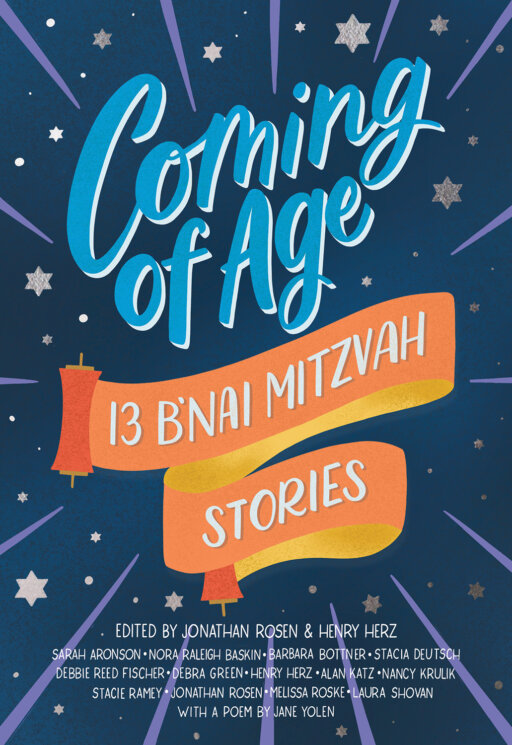 Henry Herz and Jonathan Rosen, co-editors of Coming of Age: 13 B'Nai Mitzvah Stories (Albert Whitman, $17.99), chat about bringing together this collection of stories for young readers focused on the Jewish experience of coming-of-age.
Henry Herz and Jonathan Rosen, co-editors of Coming of Age: 13 B'Nai Mitzvah Stories (Albert Whitman, $17.99), chat about bringing together this collection of stories for young readers focused on the Jewish experience of coming-of-age.
Henry Herz is the author of 12 picture books, including I Am Smoke. He has written children's short stories for Highlights for Children, Ladybug magazine, Metastellar and Blackstone Publishing.
Jonathan Rosen is an agent at the Seymour Agency and the author of the Spooky Middle Grade titles, Night of the Living Cuddle Bunnies and its sequel, From Sunset till Sunrise. He is an administrator of the middle-grade reading site FromtheMixedUpFiles.com and the co-host of the YouTube channel Pop Culture Retro.
Henry Herz: Why did you want to create Coming of Age?
Jonathan Rosen: The inspiration was basically a desire to see more Jewish stories. There seemed to be a lack of inclusion for Jewish-centric stories, and it would be nice for Jewish kids to see themselves or others like them in print. Thankfully, when the subject was broached to other Jewish authors, the vast majority of them agreed to sign on, pretty much for the same reason. They also felt the need for increased Jewish representation in kid lit.
Would you like to tell Shelf Awareness readers about how contributing authors were selected?
 |
|
| Henry Herz | |
HH: You and I put our heads together to create a list of Jewish authors whose writing we respected. We originally wanted 18 authors, because that number symbolizes chai (life) in Judaism. But for various reasons, we ended up at 13, which also resonates since it is the common age of becoming b'nai mitzvah. We are very happy with the team of authors that joined the project. And the legendary Jane Yolen providing a poem was the cherry on top. (Upon hearing me use the term legendary to describe her, Jane assured me she is quite real.) Can you give those unfamiliar with b'nai mitzvah an overview of the ritual?
 |
|
| Jonathan Rosen | |
JR: It really is a milestone of a Jewish child's life, a rite of passage in a way. Usually, when a boy becomes 13 and a girl 12, they are considered adults and are ready to take part in Jewish ceremonies. The ritual varies, but often includes co-leading a religious service in Hebrew with the rabbi, chanting from the Torah in a prescribed melody, offering an interpretation of the Torah passage and conducting a mitzvah project ahead of time that contributes to social justice. The festive meal and party afterward are a modern addition.
I personally loved the inclusion of Yiddish words in some of the stories in this collection.
HH: The Yiddish language originated in ninth-century Central Europe as a blend of Hebrew and German. Or as Billy Crystal joked, a blend of German and phlegm, acknowledging the frequency of the back-of-the-throat-clearing sounds in Yiddish words like chutzpah (nerve) and mishpacha (family). Yiddish terms are firmly rooted in Ashkenazi Jewish culture and traditions. But many have worked their way into everyday English, like klutz, mazel tov, nosh, shmooze, shmuck and tuchus. (Here is a delightful video of a young girl explaining some of these terms.) Two of my favorites are, "I need this like a hole in the head" and, "Don't worry. It will heal before the wedding," which is a way to assuage someone's concerns.
So, tell me about your bar mitzvah!
JR: I had my bar mitzvah at the Western Wall in Israel. We were living there at the time, and I remember thinking about all the multitudes of similar experiences that had taken place there before mine. It really impacted me. While the story I wrote for Coming of Age doesn't take from that experience, the feeling of respecting what came before definitely did.
HH: I wasn't there for my bar mitzvah, but we visited the Wall a year later. I remember being so moved when I noticed my father stuffing a note in a crevice, as many people do. I felt quite sure it was a prayer on behalf of me, my brothers and my mother.
JR: What was it like editing others' stories?
HH: It was a ton of fun. And I was surprised that three of the 13 stories were science fiction. I did not see that coming. The topics, themes and writing styles vary considerably, but are all lovely. And isn't that the point of an anthology? I felt a bit of imposter syndrome co-editing an anthology featuring Jane Yolen and two New York Times bestselling authors, though.
What do you want readers to get out of this anthology?
JR: First and foremost, I want and hope for readers to be entertained. The only agenda this anthology had was to get Jewish stories out there. Other than that, the purpose was to entertain. It really is a matter of what was said before: I want Jewish kids to see stories where they and the issues that they face are front and center. In reality, every kid who reads this should be able to see a part of themselves and see that we are all alike. Do you think one has to be Jewish to enjoy the stories?
HH: Definitely not. These are stories anyone can appreciate. While Jewish readers may smile at terms and traditions with fond memory, it is important for non-Jews to see that struggling through adolescence and family dynamics are the same for all people. We also hope that these stories will build bridges and perhaps when Jews aren't "othered," they'll suffer less antisemitism.
JR: Yes, there are so many different types of stories in the anthology, in different genres, that there will be something for everyone. It will also be nice for Jewish kids to read about Jewish themes. And, while I know it probably won't be automatically picked up by non-Jewish kids, there is a hope that if some do, it can create a better understanding and closeness.
HH: How has the book been received so far?
JR: Thankfully, the book has been warmly received. We've heard from many teachers, bloggers, parents and--most importantly--kids who have really embraced the book. It helped that there were so many different styles within, so there really is something for everyone.
HH: Any advice for the aspiring Jewish teen writers who are reading this interview?
JR: You really need to read and write a lot. Especially in the genres that you like to write. And write whenever you can. It doesn't matter if the first times you try are not good. That's what revision is for. But first, you want to get those words on paper, and let your creativity flow. Most importantly, don't let anyone discourage you or tell you that you're not good. Everything is subjective. You keep going. That's the only way to get better and don't let anyone deprive you of something that you enjoy doing.
Book Candy
Book Candy
NPR featured Sharon McKellar, a librarian who "collects all the things left in books--from love letters to old photos."
Inspired by a 15th-century editor, Pablo Olbi pushes to keep the centuries-old tradition of Venetian bookbinding alive, Atlas Obscura reported.
Mental Floss looked up "9 dirty words with completely appropriate secondary definitions." And "What Does 'Mea Culpa' Actually Mean?"
Bookshelf showcased Deniz Aktay's Zipper and James Younes's Donut bookcases.
Discover Great Publishers
Quirk Books Celebrates Turning 20
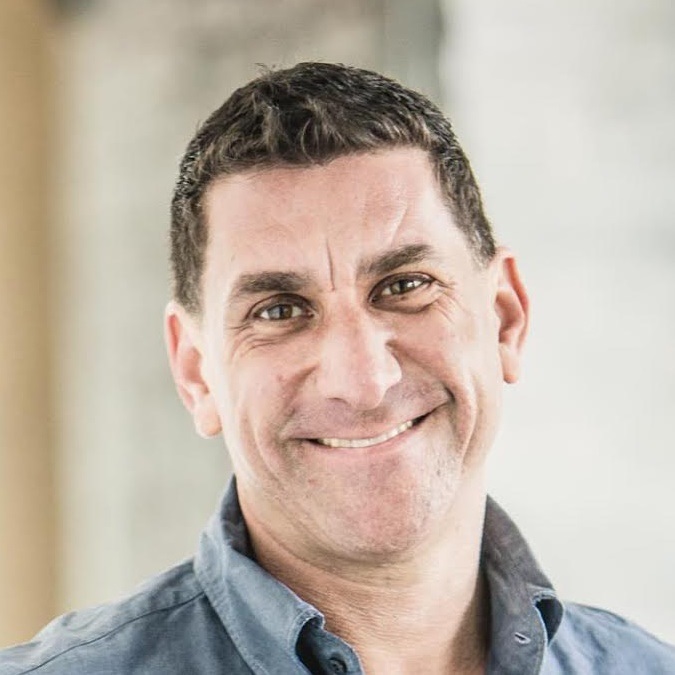 |
|
| Dave Borgenicht | |
When we launched Quirk over 20 years ago, it was with the vision to Entertain, Amuse, and Inform--often all at the same time. Our name really told you what we were up to--publishing playful, subversive, and irreverent books that provided a gateway to useful and real information. I think it's fair to say that after over 450 quirky books published, 17 New York Times best sellers, 1,000 translation deals in almost 50 languages, and millions of zombies, vampires, peculiar children, babies, and kid legends served, we have proven to all that we are quite serious about that playful vision. And that sometimes, being playfully serious can make a big mark.
But we've never been a company to rest on our laurels. (How would you do that anyway? Laurels aren't weight bearing.) At Quirk we've always used our successes as a platform to reach for new heights, to try new and interesting publishing experiments, to put new spins on evergreen subjects and genres, and to achieve a bigger and bigger impact. And we've always used the challenges we've faced to keep learning, to pivot, to do better, to evolve and change and grow.
 |
|
| Jhanteigh Kupihea | |
So, after 20 years, we've updated our original vision and mission--it's similar, but more ambitious, and yet still has that Quirky-fresh scent you have come to expect from us.
The Vision: Seriously Entertaining.
The Mission: Make a Big Impact with a Small List of Unconventional, Engaging, and Purpose-Driven Books.
To some degree, it's what we've always done when we've been at our best. It's why our titles have resonated with the culture, and inspired so many others to do similar work. But now, with the creative and seasoned leadership of Jhanteigh Kupihea and Nicole De Jackmo at the helm alongside me, I’m excited to see how big our impact can truly become—as we focus on publishing even more unconventional (but perhaps more purposeful and compelling) titles, and seeking new ways to widen our influence and reach.
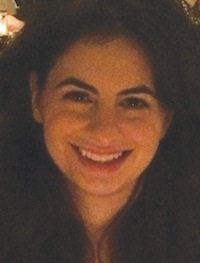 |
|
| Nicole De Jackmo | |
So I want to thank Jhanteigh and Nicole for being a key part of the continuing Quirk Books story. As well, I want to thank the real reason we continue to survive and thrive—the rest of our crack publishing A-team back in Philly. And I want to extend a huge thank you to all of you in this creative and vital industry for the many years of support, advice, partnership, promotion, and of course, sales.
I want to invite you all to please join us this fall as we celebrate our Seriously Entertaining future together.
–Dave Borgenicht, founder
Big New Titles on the Way from Quirk Books
Ghost Eaters by Clay McLeod Chapman (September 20, $20.99, 9781683692171).
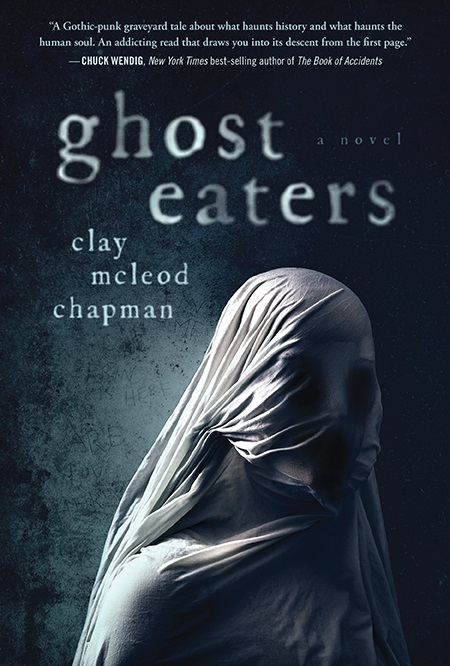 In 2019, book, film and TV writer Clay McLeod Chapman made his horror debut with The Remaking, a true-crime-inspired tale that explores how the real-life horrors behind urban legends permeate and inform society and pop culture. Chapman's 2021 follow-up, Whisper Down the Lane, centered on the McMartin preschool trial and Satanic Panic of the 1980s that created a hysterical culture primed by paranoia to believe the unbelievable. Now, Chapman returns with Ghost Eaters, a propulsive page-turner that uses a supernatural form of addiction to reckon with the complicated legacy of the South and the darkest corners of our psyche.
In 2019, book, film and TV writer Clay McLeod Chapman made his horror debut with The Remaking, a true-crime-inspired tale that explores how the real-life horrors behind urban legends permeate and inform society and pop culture. Chapman's 2021 follow-up, Whisper Down the Lane, centered on the McMartin preschool trial and Satanic Panic of the 1980s that created a hysterical culture primed by paranoia to believe the unbelievable. Now, Chapman returns with Ghost Eaters, a propulsive page-turner that uses a supernatural form of addiction to reckon with the complicated legacy of the South and the darkest corners of our psyche.
Set in Richmond, Ghost Eaters is about a grieving 20-something who finds herself agreeing to a pill-popping seance that promises to reunite her with a friend she lost to addiction.
The consequences of opening a door to the dead are horrifying and will leave readers rushing to find out the haunting horrors of ghosts—whether they're real, imaginative, or memories of the injustices perpetrated by our ancestors.
Jhanteigh Kupihea, Quirk Books' senior v-p, publisher, calls Ghost Eaters "a perfect example of my ambitions for our fiction list. On its face, it's a high-concept horror novel that could be adapted into a Blumhouse movie, but it's essentially a meditation on addiction borne out of grief and the weight of history--both personal and political. It's an absolute page-turner--I think most horror and thriller readers will read it in two sittings and won't hesitate to describe it as fun, despite its weighty themes. But it's also substantial, purposeful, and has a lot to say about how we're currently negotiating all kinds of big cultural conversations right now. This is Clay's third book with Quirk Books and it's been a joy to see his readership grow and his mission catch on with the horror community. He's really setting the tone for our fiction list in general, which is less about mashing up genres and more about using the tropes of each genre we publish into to help us process the world we live in today."
What's Your Grief?: Lists to Help You Through Any Loss by Eleanor Haley, MS, and Litsa Williams, MA, LCSW-C (September 27, $19.99, 9781683693024)
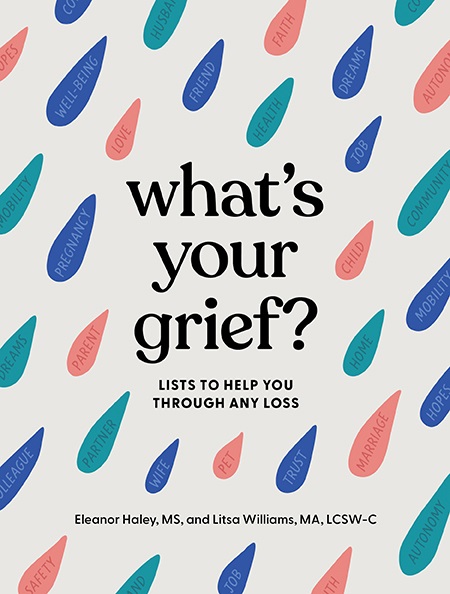 At a time when people need to cope with even more disruptions and losses than usual, particularly because of the Covid-19 pandemic, What's Your Grief helps grievers examine and investigate the complex but universal experience of grief with 75 bite-sized, manageable lists. Mental health professionals Eleanor Haley, MS, and Litsa Williams, MA, LCSW-C guide readers through grief one step at a time, making an overwhelming experience digestible while sharing insights from their more than 24 years of combined professional experience, as well as lessons learned from the millions of readers who visit their website whatsyourgrief.com each year.
At a time when people need to cope with even more disruptions and losses than usual, particularly because of the Covid-19 pandemic, What's Your Grief helps grievers examine and investigate the complex but universal experience of grief with 75 bite-sized, manageable lists. Mental health professionals Eleanor Haley, MS, and Litsa Williams, MA, LCSW-C guide readers through grief one step at a time, making an overwhelming experience digestible while sharing insights from their more than 24 years of combined professional experience, as well as lessons learned from the millions of readers who visit their website whatsyourgrief.com each year.
Nicole De Jackmo, Quirk Books' senior v-p, sales, marketing and publicity, calls What's Your Grief an example of a new kind of Quirk book that also has roots in the classic Quirk approach. "We've always done books rooted in pop culture and always somewhat unconventional," she says. "But that doesn't mean we can't take on bigger, more serious subjects." What's Your Grief was influenced by the pandemic, when founder Dave Borgenicht was pondering grief and noticed that most books on the subject are basic and "always have a sunset on the cover." This book, by contrast, focuses on all kinds of grief beyond the loss of a loved one--"any type of loss that puts you in a period of mourning and grief," De Jackmo continues. "We are still going to do fun, humorous books, but will be seriously entertaining and make an impact in whatever manner we can. This book will be impactful for people struggling with loss but it's not clinical."
How to Win the War on Truth: An Illustrated Guide to How Mistruths Are Sold, Why They Stick, and How to Reclaim Reality by Samuel C. Spitale, illustrated by Allan Whincup (October 25, $22.99, 9781683693086)
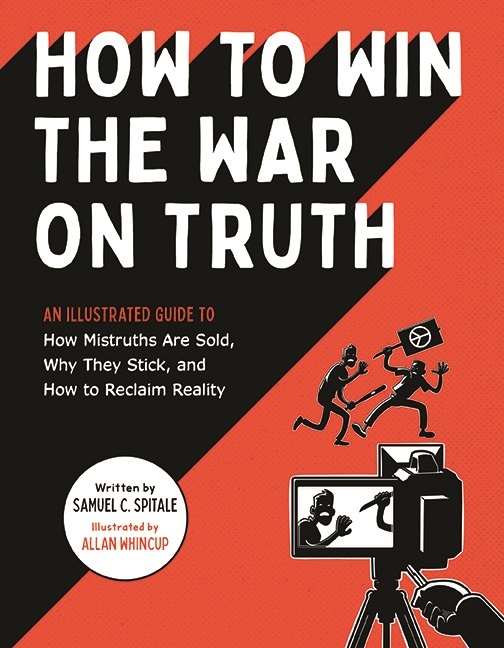 Jhanteigh Kupihea calls How to Win the War on Truth another Quirk title that's "tackling the biggest and most fraught of cultural conversations." The book is "essentially a guide to understanding what propaganda is and how the tools of propaganda have been exploited by American politicians and corporations since World War II, but it's presented in a highly accessible graphic format, which makes it perfect for Quirk's list. Big ideas are broken down into bite-sized, digestible pieces so that you can better absorb how and why we got to our current political moment, which is really just one long moment that's been building since Reagan. It's perfect for progressives who want to get their family and friends on board, liberal grown-ups who are a little sheepish to admit that they don't understand the political and financial mechanisms that have shaped our country, and older high school and college students who are learning about all of this for the first time."
Jhanteigh Kupihea calls How to Win the War on Truth another Quirk title that's "tackling the biggest and most fraught of cultural conversations." The book is "essentially a guide to understanding what propaganda is and how the tools of propaganda have been exploited by American politicians and corporations since World War II, but it's presented in a highly accessible graphic format, which makes it perfect for Quirk's list. Big ideas are broken down into bite-sized, digestible pieces so that you can better absorb how and why we got to our current political moment, which is really just one long moment that's been building since Reagan. It's perfect for progressives who want to get their family and friends on board, liberal grown-ups who are a little sheepish to admit that they don't understand the political and financial mechanisms that have shaped our country, and older high school and college students who are learning about all of this for the first time."
Samuel C. Spitale is a writer with a Master's degree in Media Studies who frequently contributes to Huffington Post, Geek magazine, io9 and Advocate.com. He has worked at Lucasfilm in global product development and as a managing editor in the publishing division. This is his first book.
Allan Whincup is a former art director who works as an illustrator and designer. His projects include logo design, character design, storyboarding, and creating assets for animation. He has also worked on games, CD covers, and comics.
The Worst-Case Scenario Handbook: Apocalypse... Now What? (Spring 2023)
Quirk founder Dave Borgenicht conceived and co-writes The Worst-Case Scenario Handbook series. For over 20 years, Quirk has been behind-the-scenes helping to package the series and despite the series' age, it's stronger than ever. This year the interactive museum exhibit that premiered in 2019 is back on the road touring nationally and The Worst-Case Scenario Card Game launched and became a Target bestseller. And in the Spring of 2023 Quirk will be publishing its first book in the series: The Worst-Case Scenario Handbook: Apocalypse... Now What?--a guide book to handling any catastrophic event one might encounter, with step-by-step instructions from real-life expert accompanied by the series' signature humor to lighten the mood.
Rediscover
Rediscover: Stuart Woods
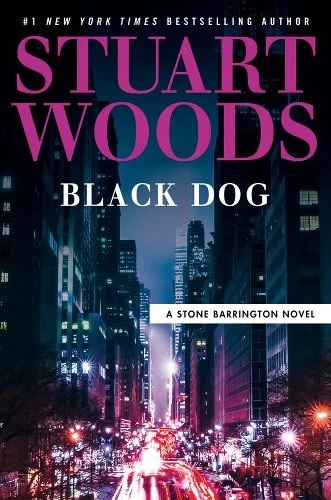 Stuart Woods, the prolific author best known for his Stone Barrington series, died July 22 at age 84. His 1981 fiction debut, Chiefs, was the first of more than 90 novels (an average of five books a year). Born and raised in Georgia, Woods moved to New York in 1960 to pursue a career as a journalist. In 1973, he moved to Galway, Ireland, and began to write his first novel. "I was about a hundred pages into the book when I discovered sailing," Woods wrote on his website. "Everything went to hell. All I did was sail."
Stuart Woods, the prolific author best known for his Stone Barrington series, died July 22 at age 84. His 1981 fiction debut, Chiefs, was the first of more than 90 novels (an average of five books a year). Born and raised in Georgia, Woods moved to New York in 1960 to pursue a career as a journalist. In 1973, he moved to Galway, Ireland, and began to write his first novel. "I was about a hundred pages into the book when I discovered sailing," Woods wrote on his website. "Everything went to hell. All I did was sail."
In 1976, he competed in the Observer Single-handed Trans-Atlantic Race, after which he returned to Georgia and wrote his first book--Blue Water, Green Skipper--a nonfiction account of his OSTAR experience. When Norton acquired the American rights to the book, it also agreed to publish Chiefs, which CBS eventually turned it into a six-hour TV movie starring Charlton Heston, Danny Glover and Billy Dee Williams. Chiefs also won the Edgar Award from the Mystery Writers of America.
Woods continued to sail throughout his career and was a pilot who flew regularly around the country on his many book tours. His memoir, An Extravagant Life, was published in June. Putnam released Black Dog, the 62nd book in the detective-turned-lawyer-investigator Stone Barrington series, on August 2; and Distant Thunder, the 63rd book in the series, will appear on October 11. Woods was also committed to the Authors Guild, becoming a member in 1977, serving on the foundation board from 2004-2021 and the advisory board since 2021. The organization's president, Douglas Preston, said, "Stuart's support of young writers was legendary. He was a huge presence in the book world. We will deeply miss him."


